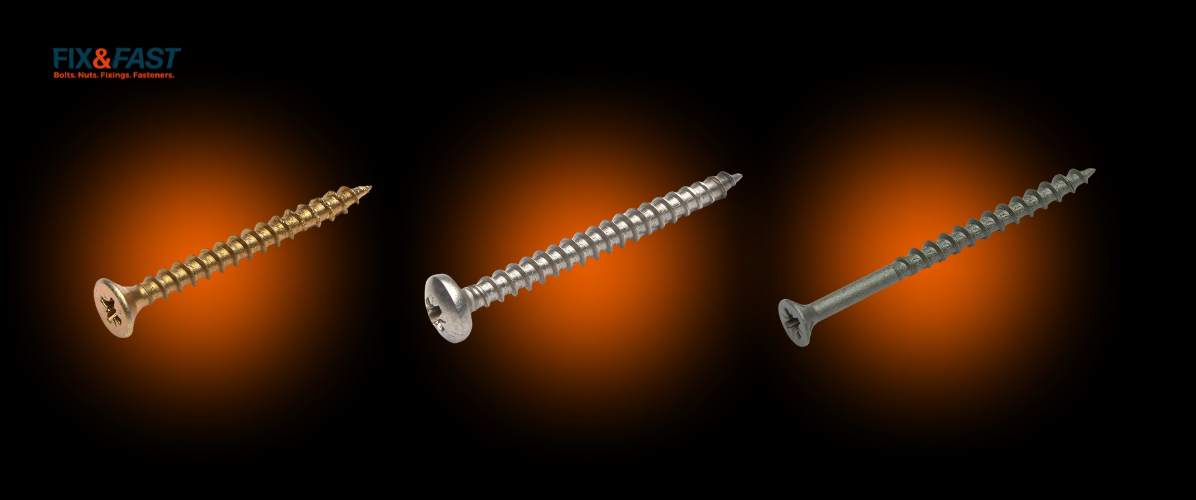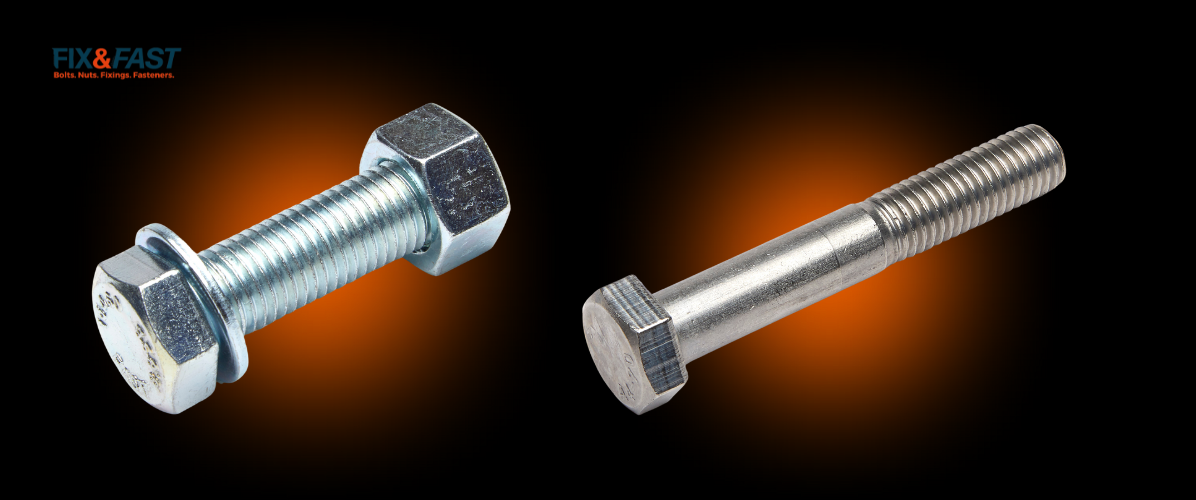Screws and Bolts - What are the differences?
In the world of fasteners, screws and bolts are two commonly used terms and often used interchangeably. This leads to confusion for many DIY enthusiasts and professionals alike. However, these two fasteners serve distinct purposes and have fundamental differences.
In this blog post, we will unravel the mysteries behind screws and bolts, exploring their unique characteristics, applications, and the scenarios in which each is most suitable. We will answer the question Screws and Bolts - What are the differences.
Defining Screws and Bolts
To begin with, it's essential to understand the basic definitions of screws and bolts:
Screws
A screw is a threaded fastener that is designed to be driven into a material using a rotating motion.
Screws are typically used to join two or more materials by pulling them together.
The head of a screw is often slotted, phillips, or pozi that allows for easy turning with a screwdriver or power tool.
Different types of screws include woodscrews, drywall screws and self drilling tek screws

Bolts
A bolt, on the other hand, is a threaded fastener with a head at one end and a nut at the other.
Bolts are used in conjunction with nuts to create a secure joint between two or more materials.
Bolts are often characterized by their partially or fully unthreaded shank.
Different types of bolts include Carriage or Coach bolts, Hex Head Bolts and Roofing bolts.

Now, let's delve into the key features that set screws and bolts apart....
Head Type
Screws: Screws typically have a head that allows for direct rotation using a screwdriver or power tool.
Bolts: Bolts have a head as well, but it is designed for use with a nut. The head may be hexagonal, square, or have other shapes to accommodate a wrench.
This sometimes can cause even more confusion. A Set Screw has an hexagonal head and no shank so is often referred to as a bolt!
Thread Configuration
Screws: Screws generally have threads along the entire length or a significant portion of the shaft. This threading is what allows them to grip into materials.
Bolts: Bolts, on the other hand, often have an unthreaded shank portion (also known as a shoulder), especially near the head. The threaded portion is usually limited to the last few inches of the bolt.
Application
Screws: Screws are primarily used for joining materials together by pulling them close. They are commonly employed in woodworking, metalworking, and construction projects.
Bolts: Bolts, when used with nuts, create a strong and detachable joint. They are often utilized in situations where disassembly and reassembly are required, such as in machinery, automotive, and structural applications.
Functionality
Screws: The primary purpose of screws is to provide a secure and fixed connection between materials, often creating a tight bond.
Bolts: Bolts, when combined with nuts, allow for a more versatile and adjustable connection. This makes them suitable for applications where a joint may need to be tightened or loosened over time.
Trusted Suppliers of Fixings and Fastners : Fix and Fast
Fix and Fast is a supplier of high-quality fixings and fasteners to the public and trade.
Here is why Fix and Fast should be your fixings supplier of choice.....
Huge range of fixings, fasteners, and hand tools all available for next day delivery.
Save Money buy only buying the amount you need. We sell all our fixings in non-box quantities so you can order 5 or 500 dependant on how many you need.
Expert advice. Struggling to know which fixing you need; our customer service and sales team have years of unmatched experience in the fixings industry. In fact our offline business and trade counter has been operating since 1945!
Rated Excellent on Trustpilot – read our reviews and buy with confidence

Differences between Screws and Bolts - Conclusion
In conclusion, while screws and bolts may seem similar at first glance, their distinct characteristics make them suitable for different applications.
Screws are designed for a fixed, permanent connection, while bolts, in conjunction with nuts, offer versatility and adjustability. Understanding the differences between screws and bolts is crucial for selecting the right fastener for your specific project.
Also consider the quality of the fasteners you use.
Choosing a reliable supplier, such as www.fixandfast.co.uk, ensures that you have access to high-quality screws, bolts, and other fasteners, guaranteeing the success and longevity of your construction or DIY project.
Get in touch by emailing sales@fixandfast.co.uk or calling 01482 324731







